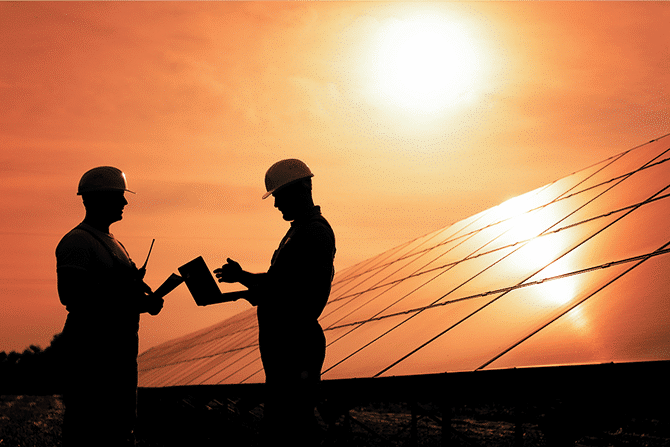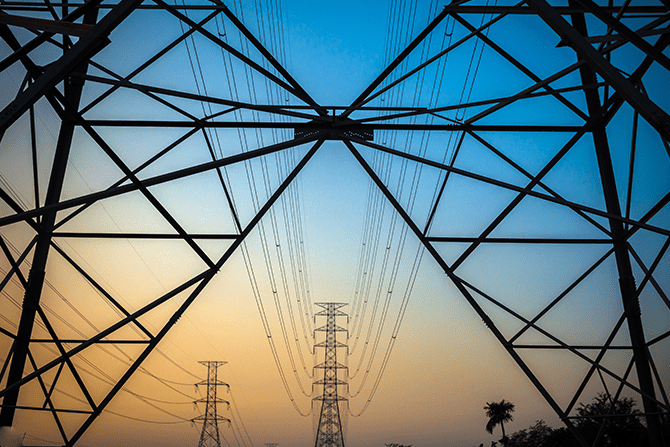Opening the taps to accelerate UK water data sharing

Industry regulator Ofwat is introducing new requirements around data sharing for the UK water sector. We explore the benefits of opening data across the sector and highlight best practice examples of other utilities that water companies can learn from.
In a rapidly changing world, the UK water industry faces key challenges around becoming more efficient, rebuilding trust with consumers and coping with the impacts of climate change. For example, industry body Water UK recently admitted that the sector has not met expectations around pollution and apologized to the public and government.
To meet these objectives, companies need to work more collaboratively across the wider ecosystem, be transparent with consumers and other stakeholders and adopt more innovative approaches to transform performance. All of this relies on data sharing, which provides the essential foundations to create a more resilient, customer-centric industry.
Unblocking data flows across the ecosystem
The state of data sharing
Currently data sharing is in its infancy in the UK water and sewage sector, as a report published in June 2023 by industry regulator Ofwat makes clear. Despite widespread public support for increased data sharing, Ofwat’s Open data in the water industry: making the change report has found little progress in data sharing since the regulator first published its H2Open paper in October 2021.
The report highlights that there has been some development of enablers, such as data infrastructure, along with cross-industry research on the foundations of data sharing, such as interoperability and standards through the Stream project. However, Ofwat’s research found that generally water company datasets are either still closed or only shared with a small number of partners. While this is delivering some benefits, these are limited, causing the regulator to call for faster, more far-reaching action across the industry, building on what has been achieved over the last year. This is backed up by a recent House of Lords committee report which called for water companies to take more action to provide open data on the environmental performance of their wastewater network and treatment works.
The need for action
To support change, Ofwat has clarified clear and urgent activities it expects companies to focus on, with the goal of achieving a step change in open data maturity across the industry in the next 18 months. Reinforcing how much of a priority data sharing is, Ofwat is developing a new license condition that will provide the industry with clear direction in this area.
It has made eight recommendations for water companies to follow:
- Identify priority datasets, releasing them to accelerate learning
- Review datasets that are currently shared with limited groups and take steps to make them openly available
- Identify open datasets that are not in machine readable format and convert these to formats that can be accessed by computers and individuals
- Release datasets with an open license to encourage free and flexible use and reuse of this information
- Develop comprehensive open data strategies, and clear roadmaps for delivery with senior buy-in and accountability
- Develop an open data culture and build data literacy across the organization
- Collaborate with the wider industry and independent experts to learn from other sectors, such as energy.
- Engage with users and create well-defined feedback loops to drive constant improvement.
The benefits of data sharing in the water industry
Data sharing is crucial to enabling the water industry to meet its challenges, delivering benefits in three key areas:
Greater transparency
Water companies need to rebuild trust with their customers and wider society around areas such as leakage and water quality. Sharing data on their performance means that they can be transparent and held accountable against targets. Data needs to be open and understandable by all if it is to increase confidence and meet the requirements of regulators and society as a whole.
Better performance
Water companies are digitizing their operations, adding sensors and monitoring capabilities across their assets. Harnessing this data enables water companies to operate more efficiently and drive performance improvements. Decision making is improved, particularly if data is shared externally with other water companies and the wider ecosystem.
Increased innovation
New ideas and innovation are central to creating a water industry that can meet its environmental, customer and regulatory goals. Sharing data enables water companies to collaborate with innovative startups, researchers and other organizations to come up with better solutions that help them meet current and future challenges. Water data also helps inform wider climate policies and enhances coordination to adapt behavior across industries.
Lessons from other sectors and countries
Utilities within the water industry are committed to increasing data sharing, such as through the Stream project. A collaboration between water companies, Stream aims to deliver the key infrastructure required to enable accessible open data sharing, while protecting sensitive data.
The positive news is that there are also successful projects across other countries and related industries that water utilities can learn from to accelerate their data sharing.
This is especially true of the energy sector, where regulator Ofgem has already introduced frameworks to mandate data sharing. Its Data Best Practice Guidance includes the principle of “presumed open” for data, with all datasets being assessed around their sensitivity and potential risks prior to publication. To enable this energy utilities have worked collaboratively to create open data triage processes and tools that could be adapted for the water sector.
UK Power Networks
UK Power Networks (UKPN), the UK’s largest distribution network and system operator, launched its open data portal in October 2021 as part of its strategy to drive the energy transition and enable robust stakeholder engagement. Data is shared with a variety of stakeholders, including local councils, developers, citizens and the wider ecosystem. Since launching its portal, UK Power Networks has extended its data sharing program, increasing its scope and adding new sources of data in conjunction with its ecosystem. It has shared much of its journey and experience, such as by making its data triage methods, and Open Energy Data Maturity Framework (OEDMF), publicly available so that they can be used across the sector and beyond, as well as publishing its data roadmap, detailing when specific datasets will be published.
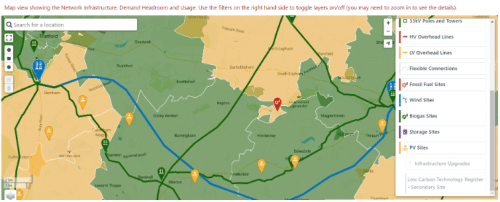
Agence ORÉ
Agence ORÉ is an organization created by all French gas and electricity distribution network operators. Through a single data portal it brings together their open data and data visualizations so that it can be accessed by partners, consumers and the wider ecosystem, helping drive forward a data-centric focus for the sector.
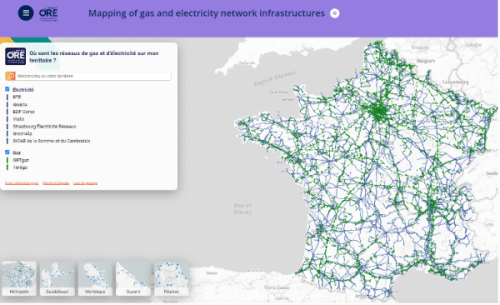
ODRE
The ODRÉ project brings together multiple French energy companies, providing a comprehensive view across the electricity and gas sectors via a single portal. Data can be easily accessed through clear visualizations that can be drilled into for more regional or local detail in areas such as consumption, biomethane gas production and temperature
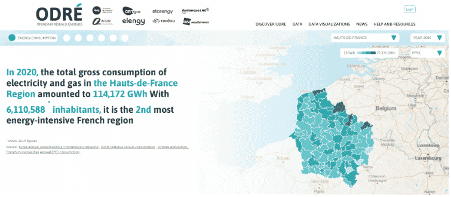
Birdz Veolia
Birdz, part of VEOLIA Water France, runs a complete network of IoT sensors, communicating across water supply networks and monitoring river water quality. This information is vital to allow utilities to control quality, protect infrastructure, and detect possible leaks. It uses Opendatasoft’s platform to create customizable data dashboards for each water distribution company it works with, tailored to their needs. This allows water companies to increase their operational efficiency by monitoring usage data and instantly detecting points of failure and leaks in their pipeline networks.
Collaboration is vital to transforming the water industry, with data sharing critical to improving efficiency, driving innovation and rebuilding trust. Working together, and learning from other sectors and organizations will underpin an innovative, data-driven future for the industry in line with Ofwat’s open data vision.

How is the European energy sector harnessing data to achieve its objectives? Based on our new State of European Energy Data Maturity Study, we explain where the sector is now, and how it needs to transform to become fully data-centric moving forward.


